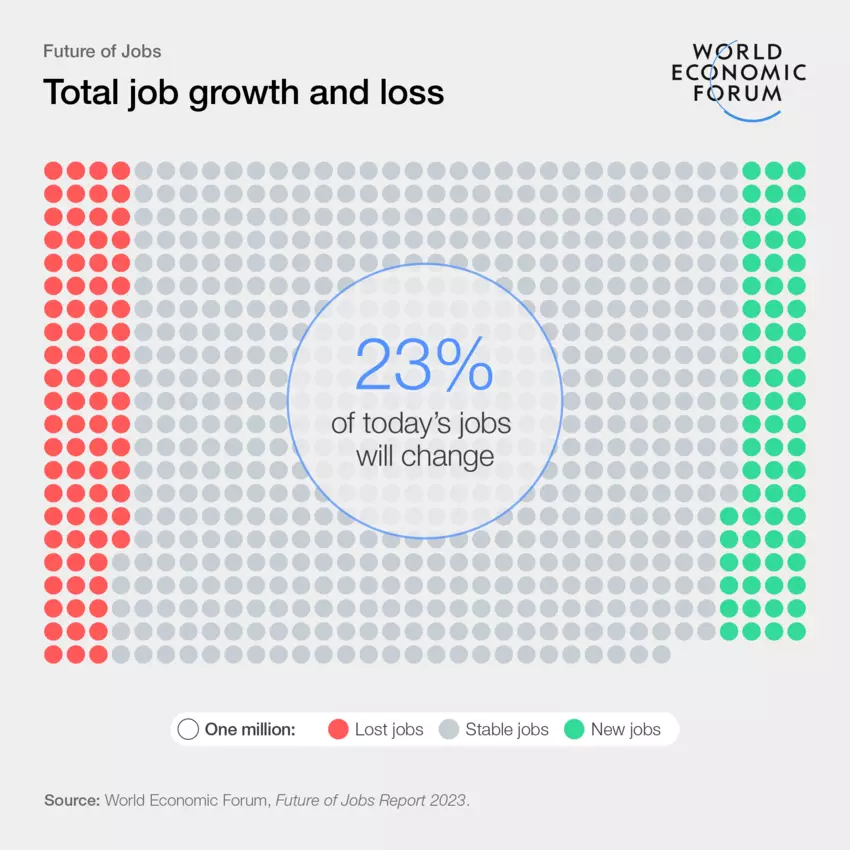Gone are the days when organizations relied solely on credentials and years of experience to assess potential employees. Instead, there’s a growing recognition of the importance of prioritizing skills above all else. As a training and development professional deeply immersed in this shift, I’m eager to shed light on why businesses must embrace a skills-first approach to thrive in the modern workplace.
World Economic Forum Reports that 23% of todays jobs will change. You can reach the details here.

Adaptability in a Rapidly Changing World
The business world is marked by constant change, driven by technological advancements, market fluctuations, and evolving consumer preferences. In such a dynamic environment, the ability to adapt quickly is essential for survival. A skills-first approach enables organizations to identify individuals who possess the core competencies needed to thrive amidst uncertainty, regardless of their specific background or pedigree.
Driving Innovation and Creativity
Innovation lies at the heart of every successful business. By prioritizing skills over traditional markers of success, organizations can tap into a diverse pool of talent, each bringing unique perspectives and capabilities to the table. This diversity fosters a culture of innovation and creativity, where fresh ideas are welcomed, and unconventional solutions are embraced.
Future-Proofing Against Technological Disruption
The rapid pace of technological advancement is reshaping industries and job roles at an unprecedented rate. In this era of digital disruption, businesses must future-proof their workforce by prioritizing skills that are adaptable and transferable across different domains. A skills-first approach ensures that employees are equipped with the technical proficiencies and digital literacy needed to thrive in an increasingly digitized world.
Enhancing Diversity and Inclusion
Diversity and inclusion are not just buzzwords—they’re essential components of a thriving workplace. By focusing on skills rather than traditional credentials, organizations can mitigate biases and barriers that may have previously hindered the recruitment and advancement of underrepresented groups. This inclusive approach not only fosters a more equitable workplace but also unlocks the full potential of diverse talent pools.
Aligning with the Gig Economy
The rise of the gig economy has fundamentally changed the nature of work, with an increasing number of individuals opting for freelance or contract-based arrangements. A skills-first approach allows businesses to leverage the gig economy by identifying and engaging skilled professionals on a project-by-project basis, rather than relying solely on traditional full-time hires.
Conclusion: Embracing the Skills-First Mindset
In conclusion, the adoption of a skills-first approach is not just a trend—it’s a strategic imperative for businesses looking to thrive in the modern workplace. By prioritizing skills over pedigree, organizations can foster adaptability, drive innovation, future-proof their workforce, enhance diversity and inclusion, and align with the evolving nature of work. As a training and development professional, I’m committed to helping businesses unlock the full potential of their workforce through skills-based talent management. Together, let’s embrace the skills-first mindset and pave the way for success in the dynamic world of business.





